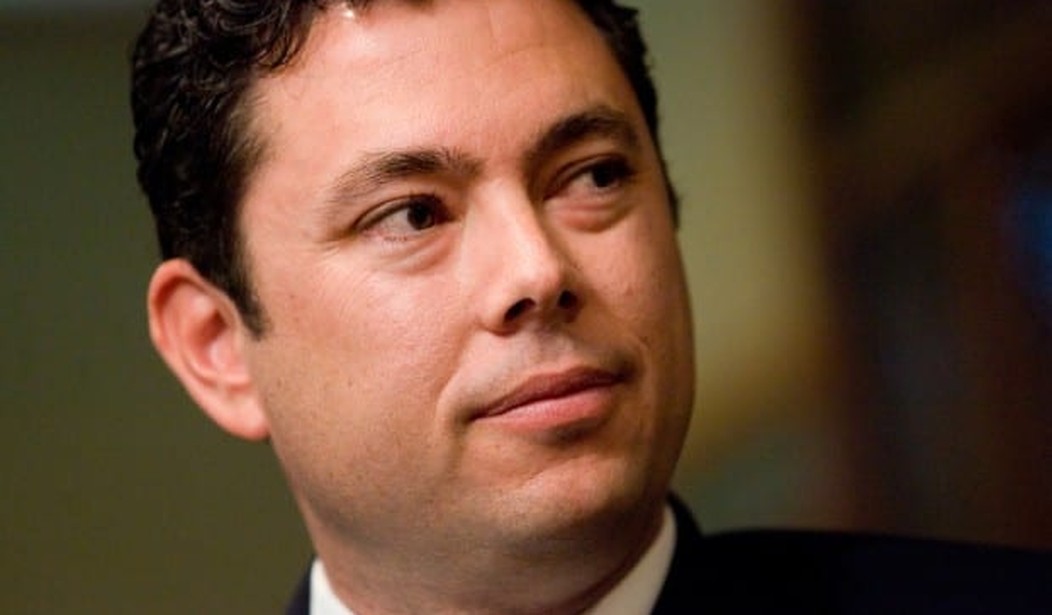Rep. Jason Chaffetz (R-Utah), chairman of the House Committee on Oversight and Government Reform, expressed concern that the federal government might try to intervene in the “gig economy” and over-regulate companies such as Uber.
“One of the reasons I think this economy is flowing and this sector is flowing is because government hasn’t been involved. It has been the Wild Wild West. It has been tapping into that entrepreneurial spirit,” he said at a POLITICO discussion called “Generation Next: The Future of Work.”
“It’s been tapping into young people’s idealism that says you can make money. You can be an entrepreneur and you can do something without having to wear a tie. You can do it in your bathroom, if you would like, and you can do it at your own pace and your own creativity,” he added.
Chaffetz said he is “deeply concerned” the federal government is going to interfere and attempt to suddenly “save people from themselves.”
“I’m worried about that. I like the Wild West. I like the idea that entrepreneurs can thrive,” he said. “I worry that the government will come in and over-regulate it and create more barriers and slow people down.”
He also said there is a “generational” problem in Congress that could ultimately hurt the state of the gig economy, which is based on independent contract work.
Aside from passing some sort of immigration reform bill, Chaffetz argued there is nothing else the federal government has to do to help the gig economy.
“Let’s not pretend that Washington knows better than those entrepreneurs across the country,” he said.
Citing the Uber business model, the moderator asked Chaffetz if it is time for Congress to rethink the way the “social safety net” is provided.
“We’re talking about a huge success story. Uber can only be successful if they provide a great product or service,” he replied. “The economics seem to work themselves out. If they weren’t getting a fair return for their money they wouldn’t be doing it.”
Sen. Mark Warner (D-Va.), a member of the Senate Finance Committee, agreed that the government should not intervene and “squash innovation” but said there is a “huge free rider problem.” He said many people not relying on W2 income only do well for certain periods of time.
“Then they all fall back on the taxpayer dime and that’s not good either, particularly for millennials if you are looking at $18 trillion in debt that we’ve already run up,” Warner said. “If folks fall into this crevice – in the past there was some level of a safety net that frankly both sides contributed to.”
Warner suggested a “regulatory timeout” be put in effect so the government can assess the best framework for dealing with the gig economy.
“I don’t know a single platform or a single enterprise that I’ve talked to in this space that really wants to go through a litigation pattern where they’re going to have 50 different state models or for that matter 10,000 different local sets of regulations,” he said. “At some point we are going to have to step into this in a way that’s going to allow this innovation to flourish.”
Chaffetz also addressed the minimum wage debate.
“The higher you make that minimum wage, the less younger people you get to have work experiences, and we don’t talk enough about teens. We talk about people who are starting their careers but we have a whole generation of people who don’t have the experience of work and personal responsibility and learning the value of a dollar.”
Sara Horowitz, founder and executive director of Freelancers Union, raised the issue of income inequality during the discussion.
In response, Chaffetz said Utah has less income inequality than most states.
“Statistically, we’re one of the best in nation and it isn’t because Washington, D.C., came in and solved it. We took care of it ourselves. We’re very entrepreneurial,” he said.









Join the conversation as a VIP Member